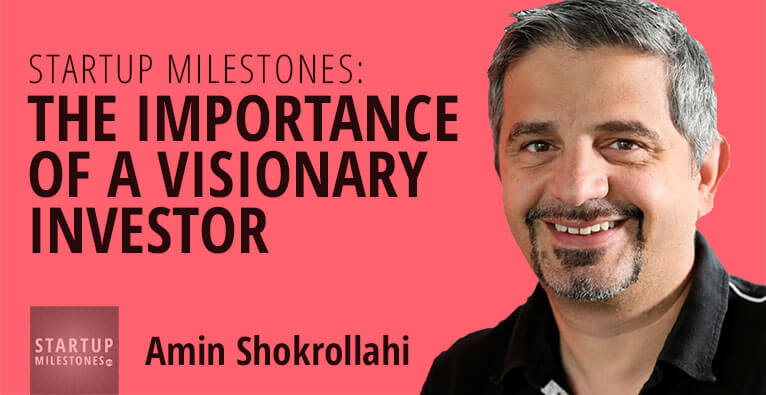✨ AI Kontextualisierung
Equity Crowd Funding is different than Kickstarter or Indiegogo. You get money in exchange for shares of your startup. And it’s getting more and more popular in Europe. This opens up interesting opportunities for certain kinds of startups to boost their growth. Nathan Rose, crowd funding expert and author of the book “Equity Crowd Funding – the complete guide for startups and growing companies” came on the Startup Milestones podcast to share valuable insights he gained when analyzed and interviewed dozens of companies and their equity crowd funding campaigns. Here are some of the key insights.
+++ Crowdfunding: Was steckt dahinter und worauf sollte man achten +++
When Kickstarter or Indiegogo is NOT for you
“Kickstarter and Indiegogo only work really well for consumer products”, Nathan explains. Investors in these campaigns are typically people who want to have the product and thus want to support it. In Equity Crowd Funding, investors are people investing in the business model, taking a share of the company and hoping for an exit or dividends – very similar to what an Angel or VC would do. “With Equity Crowd Funding, FinTec, software or MedTec companies now have an opportunity to get investing through the crowd, too”, Nathan highlights the importance for these and other B2B companies.
Gain publicity with your campaign
Running a successful Equity Crowd Funding campaign will get you money for the growth of your company, of course. But Nathan points out, that for most startups, getting noticed on the market is the #1 challenge next to funding. Running an Equity Crowd Funding campaign can help you get visibility and publicity which smart founders can turn into revenue, business partnerships or even additional funding from institutional investors.
Raising GBP 1.000.000 in 96 seconds
“Mozo Bank raised 1 million Pounds in 96 seconds in the UK. This is a nice headline – but really, it did not take them 96 seconds to raise 1 million. It took them a year to build an engaged community first”, Nathan reports of a company he studied closely. One of the biggest mistakes is to think you can post a deal on a platform and expect investors to line up.
Redaktionstipps
Start with momentum

“Start your campaign with momentum”, Nathan recommends. GoHenry, another company Nathan knows well, only opened their deal on the platform after they already had half of the investment secured. How did they do it? They offered the deal to their email list, which they built ever since they built their company. They also got a couple of lead investors. “Get an angel investor to lead the round. For instance 30-50% of the money you are looking for”, Nathan leads into sharing another interesting aspect: having that ‘smart money’ investor, who has been in that business before, who negotiated the valuation of your deal – this gives the crowd investors a lot of confidence: not only that the deal is good; but also that the valuation is fair. GoHenry went on to close their campaign within a few days – “this is not normal, but if you bild this momentum, people see that the offer is hot. GoHenry reaised 4.000.000 Points”, grins Nathan.
Possible risks and downsides
Like with everything, you have to also look at the possible negatives. Nathan points out a couple of risks any founder should consider before doing Equity Crowd Funding. “Are you comfortable having your entire business model broadcast out, including your competitors”, is one question, the founders should be clear about. Equity Crowd Funding investors, just like any investor, expects to read and understand how the founder plans to turn his money into a profitable investment. “Companies with a lot of value tied up in intellectual property, or who want to be first to market might not want to put all that information out there”, Nathan warns. Another point Nathan mentions is “if you fail to raise the capital, this is public information”. While you can build a lot of momentum and publicity with a successful campaign – the flip side of the coin is that a failed campaign may hurt you.
Pick the right platform
There are some legal restrictions: some European countries don’t allow Equity Crowd Funding yet. Some limit the amount you can raise. There is a great report from Crowdfunding Hub, that gives you an overview. But apart from that, how do you pick the best platform? “Just about any platform can handle the basics: handle payments, putting a video up, etc. But the real value ad of a good Equity Crowd Funding platform is the number of investors hanging out there, looking for deals to invest in”, Nathan stresses. Look at the audience they already have. Asked for some concrete numbers, Nathan estimates: “Very large platforms can get you half of your investment. The remaining half you have to acquire through your channels. At small platforms, you will have to bring almost all investors yourself.”
+++ Wirtschaftsministerium launcht Crowdfunding-Plattform für Tourismus-Startups +++







